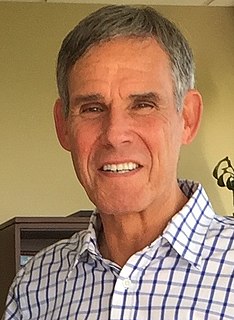A Quote by Eric Topol
Not only can consumers handle their personal genetic information, but they are getting genomically oriented and anchored about such data.
Related Quotes
There is so much information that our ability to focus on any piece of it is interrupted by other information, so that we bathe in information but hardly absorb or analyse it. Data are interrupted by other data before we've thought about the first round, and contemplating three streams of data at once may be a way to think about none of them.
Data isn't information. ... Information, unlike data, is useful. While there's a gulf between data and information, there's a wide ocean between information and knowledge. What turns the gears in our brains isn't information, but ideas, inventions, and inspiration. Knowledge-not information-implies understanding. And beyond knowledge lies what we should be seeking: wisdom.
Many of us will be obsessed with one or another kind of secret or revelation, be it gossip about friends or ourselves, a fantasy about spies, or a worry about the most personal information now stored in data banks. But few of us think about secrets in general, or about the moral rights and wrongs of hiding or exposing them.
We live in a time when there are tech companies that have an unprecedented accumulation of power, wealth, and information with basically no competition. It's not in their nature to self-regulate, to break themselves up, or ask for less information. It's only in their nature to grow and gain more information from us, because the more that they know about us, honestly the better they can market to us and sell to us and make us better consumers.

































